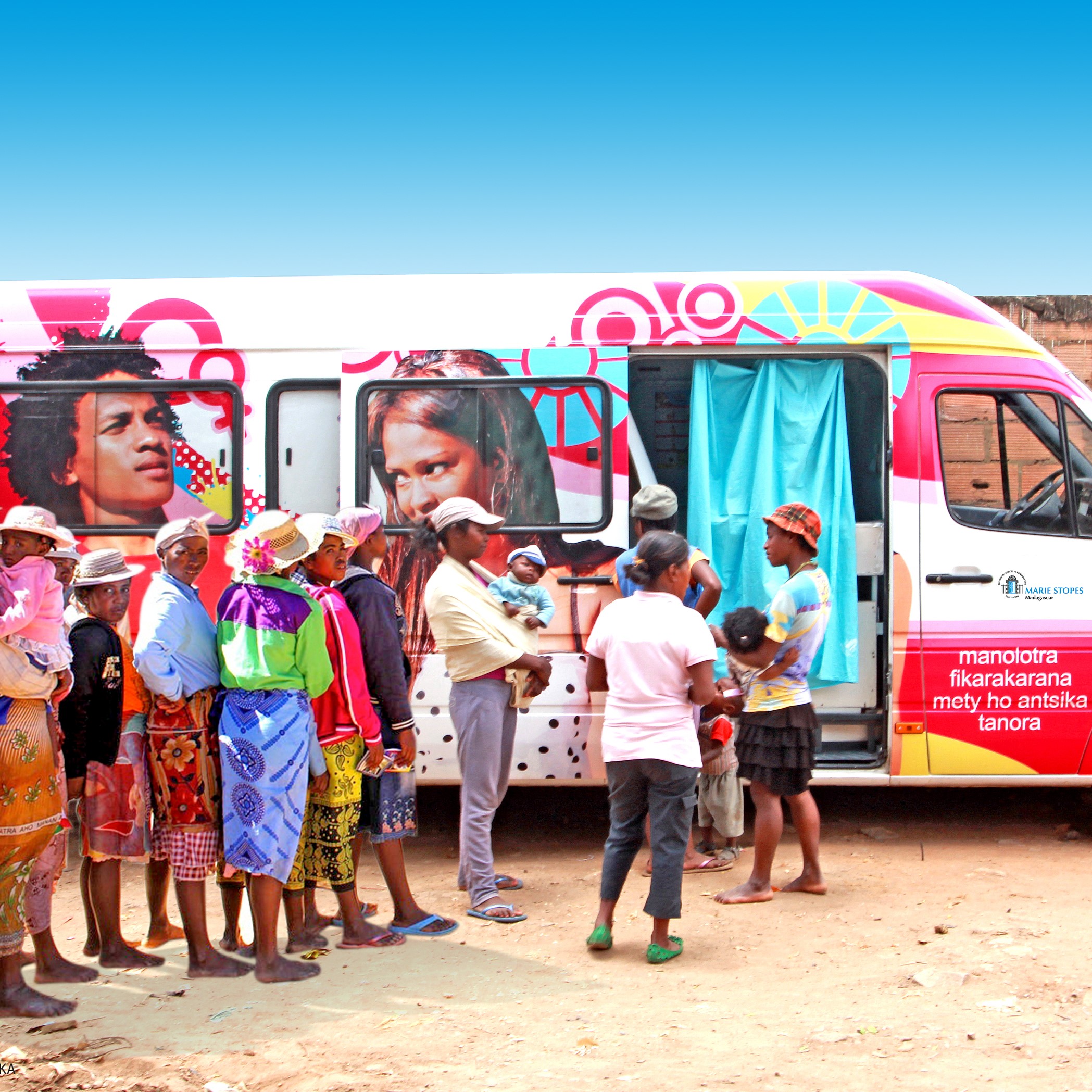Marie Stopes International, as a provider of contraceptive, safe abortion and post-abortion care services in the developing world, plays an important role in ensuring no woman or community is left behind in access to sexual and reproductive health and rights.
Our focus on increasing access to high quality sexual and reproductive health services for the most marginalized communities allows Marie Stopes International to serve women, girls, men and boys who would normally not have access to these essential and life-changing services. We have developed strategies to increase the access of the rural, the poor, and adolescents – groups with the highest unmet need – to sexual and reproductive health information and services through outreach services, waiver and voucher programmes, and our adolescent strategy. We also advocate to remove legal or policy barriers and to strengthen frameworks that protect sexual and reproductive health and rights. We increase access to information through our call centres and comprehensive sexuality education for both in and out of school youth, and we work to reduce stigma surrounding sexuality and sexual and reproductive health and rights through our work with community based mobilisers, community gatekeepers, and boys and men.
Risks to women and girls’ health
Unfortunately, women and girls’ sexual and reproductive health and rights are increasingly at risk. In January 2017, US President Donald Trump re-instated an expanded version of the Mexico City Policy – also known as the Global Gag Rule. This policy prevents any organisation that provides safe abortion services or information from receiving any USAID funding – even funding that is only being used for contraceptive information and services.
Marie Stopes International’s refusal of the Global Gag Rule and subsequent loss of funding means that two million fewer clients will be served by a Marie Stopes International provider throughout Donald Trump’s presidency. This will result in an estimated 2.5 million unintended pregnancies, 870,000 unsafe abortions and 6,900 maternal deaths between now and 2020. This is the impact on our services alone.
The Global Gag Rule has also produced a chilling effect – organisations and governments, through fear of violating the policy, are increasingly stigmatising and marginalising the abortion issue and those that are still defending a woman’s right to choose.
The gag rule has re-established the idea that sexual and reproductive health and rights are controversial, and extremely conservative groups that deny women and girls autonomy over their own bodies have been emboldened.
With the largest generation of youth about to enter their reproductive years, they are the ones who will face the brunt of the damage caused by the Global Gag Rule. Women and girls who lack access to a choice of family planning method are less likely to complete their education, have a career, or be able to pursue their plans and dreams for the future. They are more likely to experience an unintended pregnancy, and more likely to risk death and disability by undergoing an unsafe abortion. This negatively impacts not just women’s health and their opportunities for the future, but the longer-term economic prospects and stability of the world’s poorest countries.
So what now?
Madagascar is one of the Marie Stopes programmes hardest hit by the effects of the Global Gag Rule. When asked about how they would feel if Marie Stopes couldn’t serve them anymore, one of our outreach clients screamed – ‘So what now?’
Well, now the global community has a narrow yet critical window of opportunity to fill the gap left by the Global Gag Rule. The first and most urgent task is to secure increased funding – organisations such as Marie Stopes International have already had to close sites, often the only ones available to the populations we serve, due to a lack of funding. While many Governments stepped up to fill the gap short-term, we need to ensure this additional funding continues until 2020. Citizens should pressure their Governments to increase their financial support to organisations that have had to turn down USAID funding and Governments should take up this cause.
Secondly, it is more important now than ever before that we join up and unite as a women’s movement. Gender equality and the empowerment of women cannot be achieved without addressing women and girls’ sexual and reproductive health. We must be vocal and make sure these rights are not left out of discussions on women’s empowerment or on development. We need to link up with Agenda 2030 and focus on Sustainable Development Goals 3 and 5 which set development targets for sexual and reproductive health. We have a duty to make sure that the next generation of young people understand that they have the right to make decisions about their sexuality and their own bodies, and we must ensure they have the capacity to claim those rights.
For more information on the global gag’s impacts on MSI’s work, see: The Global Gag Rule: A world without choice
